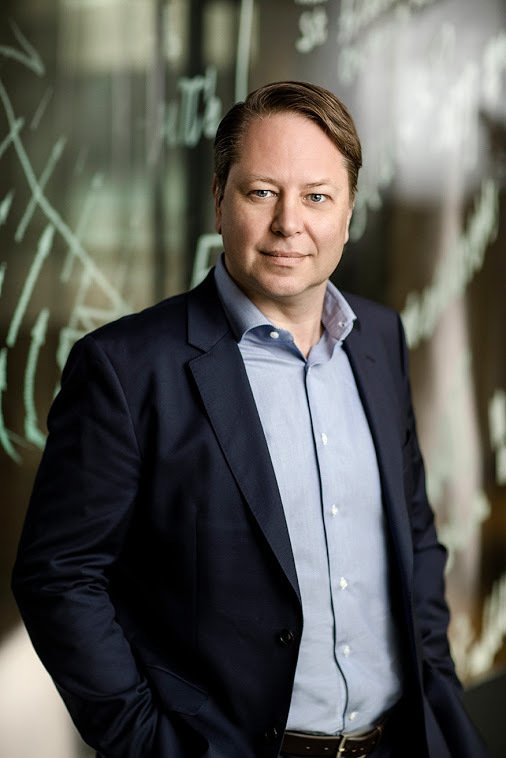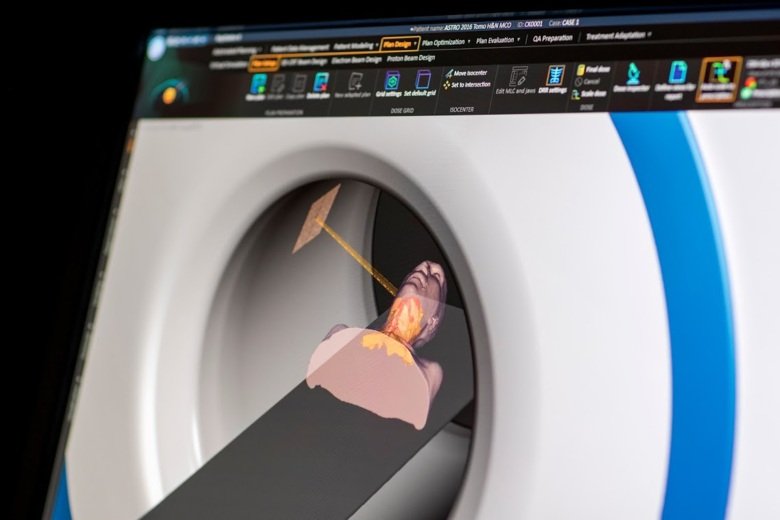Improve the accuracy of radiotherapy
Approximately five million cancer patients have received optimised radiotherapy with the help of RaySearch Laboratories. Today, the company is a global player, offering a management system that optimises the running of entire cancer clinics. And it all started with a Master’s thesis at Karolinska Institutet.

Work on his thesis brought KTH student Johan Löf to professor Anders Brahme at the department of medical radiation physics at Karolinska Institutet. The aim of Löf ’s thesis was to improve the accuracy of radiotherapy to avoid damaging healthy tissue surrounding cancer tumors. The results were so good that the prestigious Inverse Problems published the research paper.
“The next step was to scale-up the method and model real patients, which I did in my Master’s work at Karolinska Institutet,” says Löf, CEO and founder of RaySearch Laboratories.
Up-scaling is still in full flow almost 20 years later. Today, RaySearch Laboratories is a research-driven company where around 160 of its almost 300 employees work on research and development. Around a third of these are PhD students.
“Early on I felt that we could have a major breakthrough with our results by starting a company than by simply continuing with the research and publishing results within academia.”
When RaySearch Laboratories started in 2000, the company received a boost from business plan competition the Venture Cup. The then Karolinska Institutet vice chancellor, Hans Wigzell, was a key figure at the outset, when young PhD students needed a senior voice in negotiations.
“Independence has been important throughout this journey. Thanks to us making a profit early on, we haven’t needed to attract more than SEK 6 million in venture capital which has made it possible to have an extremely long-term view of our development,” he says.
The original inspiration for the project was personal. “My mother died from cancer when I was a teenager, which was an important factor in my choice of PhD position. I enjoyed maths and physics, and discovered that I could apply these two subjects to cancer treatment in a way that made a real difference. I’ve now met many cancer patients all over the world and seen how we make a difference to their lives,” he says.

Management of entire clinics
In addition to the RayStation planning system, the company recently launched the RayCare information system for operational management of entire cancer clinics. This was released in 2018 and is now operational in some of the world’s leading cancer clinics. Among the unique aspects of the system is that it can optimise combinations of radiotherapy, chemotherapy and surgery.
“The entire architecture is a teaching system and is set to revolutionise treatment by suggesting optimal treatment strategies. The world’s leading clinics want to work with us and believe in our vision of big data and machine learning. That shows that we’re on the right track,” says Löf.
Optimising care systems for entire hospitals
The next step is to take learnings from RayCare and apply them to an entire hospital. Existing healthcare information systems manage everything from daily clinical activity to operational planning. But Löf envisions how these could be improved, not least by paying greater attention to patients’ everyday lives.
“We want to make a contribution for those seeking healthcare but experience a lack of co-ordination and communication. This is where we can optimise care systems’ efforts so that they work in tune with the rest of patients’ lives,” says Löf.
Quick facts
Development step-by-step
RaySearch Laboratories was established in 2000. Initially, it focused on licensing software, but in 2009 the company’s own RayStation system was launched. Today, there are some 550 clinics worldwide that use the system, a number that continues to grow by around 100 every year. 2017 saw the launch of Raycare, a comprehensive information system for cancer clinics.
